Todmorden Mills Heritage Site
The natural environment along with a wildfliower preserve and historic buildings make the Todmorden Mills Heritage Site in Toronto a fascinating place to explore

Located in the beautiful scenic Don River Valley, Todmorden Mills Heritage Site and Art Centre which is surrounded by 37 acres of green space was once an industrial community. It is actually one of ten historic sites and museums run by the City of Toronto. There are tours and exhibitions for visitors to enjoy and educate you on the way our history relates to our present.
This Historic Site has four influential restored and preserve heritage buildings both residential and industrial. These include the restored paper mill that has a Theatre and Gallery in it, the Brewery Gallery and two historic houses including the Helliwell residence which was built in the late 1830s.
You can enjoy exploring over 20 acres of land in the Todmorden Mills Wildflower Preserve with winding walking trails that explore many natural dwellings such as forests, swamps and meadows.
There is even an old red brick road that goes from the Todmorden Mills to the Don Valley Brick Works.
At present the site has four influential restored and preserved heritage buildings both residential and industrial. These include, the restored paper mill that has a now features a Theatre and a Gallery, the Brewery Gallery and two historic houses, including the Helliwell residence which was built in the late 1830s.
Background and History
In the late 1700s the Skinner brothers, Aaron and Isaiah, got permission from the Lieutenant Governor of Upper Canada John Graves Simcoe to purchase some property along the Don river with the understanding that it was to be used to open a sawmill. This business proved to be very successful and the brothers soon decided to expand their business by adding a grist mill.
In 1821, the Helliwell family who immigrated from England to the Don Valley, named the area they settled in The Todmorden because it reminded them of their home town of Todmorden in Lancashire. The family opened a successful brewery and distillery that ran up until it was destroyed by a fire in 1847.
During the early 1800s most of the area was dominated by the Skinnner brothers and Helliwell families who produced an array of materials and products which included lumber, paper, flour, beer and whiskey.
In 1825 one of the grist mills was transformed into a paper mill. This paper mill became the first to produce machine made paper in Upper Canada or what is now primarily Southern Ontario. This provided newsprint for part of the settlement's original publications including William Lyon Mackenzie's popular newspaper The Colonial Advocate.
After the fire in 1847 the Helliwell family sold their land in 1855 to the Taylor brothers; Thomas, William and George. At that time most of the property in Todmorden was owned by the Taylor's who became widely known for their brick manufacturing company, supplying many well known structures in Toronto with brick that came from their Don Valley Pressed Brick Company. Casa Loma and Massey Hall are just a couple of examples of those historic buildings.
In 1954 Hurricane Hazel did a huge amount of damage creating winds that reached 110 kilometres and dumping 285 millimetres of rain in 2 days, killing 81 people. Later the Metropolitan Toronto and Region Conservation Authority was organized to protect people from natural disasters. The MTRCA declared the land where the site is now as a portion of the flood plain. This was significant in stopping any more development in the area and saving the existing historic building from being redeveloped.
Preserving this historical site was the vision of East York's Mayor True Davidson and Charles Sauriol a conservationist who when growing up in Toronto had camped in the Don Valley and fell in love with that area and the outdoors in general. As an adult he bought 40 hectares of land at the Fork of the Don where he brought his family up to their cottage every summer. Here he wrote four books about the history of area.
In 1958 the Metropolitan Toronto and Region Conservation Authority expropriated a section of his property to build the Don Valley Parkway against his wishes even though at that time he was employed by them. One decade later they expropriated the rest of his land as part of a bigger plan to own the majority of the private property in the Don Valley.
In 1965 the houses which were on the grounds were expropriated by the Borough of East York and made part of the museum. These were in turn restored and opened to the public during the Canadian Centennial year of 1967 as part of East York's addition to the celebrations honouring the pioneers of Don Valley.
In 1989 in honour of Charles Sauriol and all the advocacy and conversational work he did for the Don Valley a section of land was named The Charles Sauriol Conservation Reserve after him. This portion of land is on the east side of the valley and runs along the Don River starting at the forks and going up to Lawrence Avenue East.
In 1991 Charles Sauriol and Dave Money (former president of the Ontario Horticultural Association) established the 20 acre ecological rehabilitation site named The Todmorden Mills Wildflower Preserve.
Another interesting fact is that a German prison camp which was situated in the location of the current parking lot during World War II.
Facts For Your Visit
Fee: NoTodmorden Mills Heritage Site Hours:
Opening hours may differ on holidays
- Monday: Closed
- Tuesday: Closed
- Wednesday: 11:00 AM – 4:00 PM
- Thursday: 11:00 AM – 4:00 PM
- Friday: 11:00 AM – 4:00 PM
- Saturday: 11:00 AM – 4:00 PM
- Sunday: 11:00 AM – 4:00 PM
Address: MJPR+78 Todmorden Mills Park, 67 Pottery Rd, Toronto, ON M4K 2B9, Canada
Phone: (416) 396-2819
Official Website: Todmorden Mills Heritage Site
Todmorden Mills Heritage Site Reviews
Rated out of 5![]()
![]() Smashing IT! 📚🤓📚
Todmorden Mills Heritage Site is a beautifully kept gem that everyone ought to visit as many times as possible.
Located at Pottery Road in the Don River Valley, situated between Broadview and Bayview Avenue it's very easy to get to by TTC.
How it all started:
In the late 1700s Lieutenant-General John Graves Simcoe, the first Lieutenant-General of Ontario. At the time, then known as York was a small settlement that needed encouragement to grow. And since the Don River was nearby Lieutenant-General John Graves Simcoe deemed that it would be an ideal spot to build up the growing York's needs to make it that more profitable and attract people from the UK to come and settle in that area.
Lieutenant-General John Graves Simcoe then granted land on the Don River to Aaron and Isaiah Skinner for the purpose of building a mill to supply lumber.
Simcoe stated "A mill should be build thereon" Parsall Terry was the first Watermaster on the Don River.
"The mill was operated by the Skinners until about 1855, when it was sold to the Taylor family. In 1820, a brewery (Helliwell or Don Brewery) was built next to the mill and operated by Thomas Helliwell and John Eastwood. The Helliwell family operated it until 1855, when it too was sold to the Taylor family. Todmorden Mills acquired its name from John Eastwood, one of the original brewery owners. His family had emigrated from Todmorden, a town then straddling the two counties of Lancashire and Yorkshire in England.
The Taylors owned a number of industrial mills in the neighbourhood including the Don Valley Brick Works. Under their ownership the mill was converted to produce felt paper. The mill continued to operate until the 1920s when the building was converted into a riding stable.
In the early 1940s, the site became the location of a small German prisoner of war camp. The camp housed men from the German merchant marine who were interned in Allied ports at the start of the war. The prisoners often worked as labourers at the nearby Don Valley Brick Works. In 1945, the prisoners were repatriated and the camp was shut down. Soon afterwards, the camp buildings were destroyed by fire, likely set by vandals.
Between 1930 and 1967, the property housed a collection of horse riding schools and light industry. In the 1930s, the Windermere Riding Academy used the property. Don Vale Textiles occupied the property in the late 1940s. From 1950 and 1963, the Whitewood Riding School was housed at the stables.
During the building of the Don Valley Parkway, the site was extensively modified. The river which used to pass through the site in a wide meander was straightened so that it was entirely cut off from the site. The former riverbed was turned into a pond and the bridge that used to cross the river is now only used to reach a parking lot.
In 1965, the mill site was proposed as a centennial project by East York's mayor, True Davidson. On May 22, 1967, it was opened as the Todmorden Mills Historic Site and started to function as a community museum. Davidson remained as an honorary curator until her death in 1978. Currently the museum maintains four buildings from the original settlement including the old paper mill which dates from 1825, a brewery and two homes. The Don railway station was moved to Todmorden in 1969, and remained at Todmorden until 2009 when it was moved to Roundhouse Park. In the near future, the museum is hoping to re-restore Helliwell House to resemble its appearance in the 1890s."
There is so much history at Todmorden Mills it's not only rich in Indigenous culture it's also just a gorgeous and splendid place t take a stroll or even picnic.
There are also guided tours you can take. The tour guides are wonderful, friendly and very knowledgeable about the history of the area.
The two historical homes are absolutely breathtaking that contain some very rare and unique items to see.
So if you got a day off and wondering what to do may I suggest dusting off those sneakers and heading out to Todmorden Mills Heritage Site for the day!
Smashing IT! 📚🤓📚
Todmorden Mills Heritage Site is a beautifully kept gem that everyone ought to visit as many times as possible.
Located at Pottery Road in the Don River Valley, situated between Broadview and Bayview Avenue it's very easy to get to by TTC.
How it all started:
In the late 1700s Lieutenant-General John Graves Simcoe, the first Lieutenant-General of Ontario. At the time, then known as York was a small settlement that needed encouragement to grow. And since the Don River was nearby Lieutenant-General John Graves Simcoe deemed that it would be an ideal spot to build up the growing York's needs to make it that more profitable and attract people from the UK to come and settle in that area.
Lieutenant-General John Graves Simcoe then granted land on the Don River to Aaron and Isaiah Skinner for the purpose of building a mill to supply lumber.
Simcoe stated "A mill should be build thereon" Parsall Terry was the first Watermaster on the Don River.
"The mill was operated by the Skinners until about 1855, when it was sold to the Taylor family. In 1820, a brewery (Helliwell or Don Brewery) was built next to the mill and operated by Thomas Helliwell and John Eastwood. The Helliwell family operated it until 1855, when it too was sold to the Taylor family. Todmorden Mills acquired its name from John Eastwood, one of the original brewery owners. His family had emigrated from Todmorden, a town then straddling the two counties of Lancashire and Yorkshire in England.
The Taylors owned a number of industrial mills in the neighbourhood including the Don Valley Brick Works. Under their ownership the mill was converted to produce felt paper. The mill continued to operate until the 1920s when the building was converted into a riding stable.
In the early 1940s, the site became the location of a small German prisoner of war camp. The camp housed men from the German merchant marine who were interned in Allied ports at the start of the war. The prisoners often worked as labourers at the nearby Don Valley Brick Works. In 1945, the prisoners were repatriated and the camp was shut down. Soon afterwards, the camp buildings were destroyed by fire, likely set by vandals.
Between 1930 and 1967, the property housed a collection of horse riding schools and light industry. In the 1930s, the Windermere Riding Academy used the property. Don Vale Textiles occupied the property in the late 1940s. From 1950 and 1963, the Whitewood Riding School was housed at the stables.
During the building of the Don Valley Parkway, the site was extensively modified. The river which used to pass through the site in a wide meander was straightened so that it was entirely cut off from the site. The former riverbed was turned into a pond and the bridge that used to cross the river is now only used to reach a parking lot.
In 1965, the mill site was proposed as a centennial project by East York's mayor, True Davidson. On May 22, 1967, it was opened as the Todmorden Mills Historic Site and started to function as a community museum. Davidson remained as an honorary curator until her death in 1978. Currently the museum maintains four buildings from the original settlement including the old paper mill which dates from 1825, a brewery and two homes. The Don railway station was moved to Todmorden in 1969, and remained at Todmorden until 2009 when it was moved to Roundhouse Park. In the near future, the museum is hoping to re-restore Helliwell House to resemble its appearance in the 1890s."
There is so much history at Todmorden Mills it's not only rich in Indigenous culture it's also just a gorgeous and splendid place t take a stroll or even picnic.
There are also guided tours you can take. The tour guides are wonderful, friendly and very knowledgeable about the history of the area.
The two historical homes are absolutely breathtaking that contain some very rare and unique items to see.
So if you got a day off and wondering what to do may I suggest dusting off those sneakers and heading out to Todmorden Mills Heritage Site for the day!
Sandi Cole - a month ago
![]() It would have been nice to know that the park buildings were all closed for the season. The park is nice and the trails are good, but I would not suggest (Like it said) that they were suitable for biking, just walking I would suggest. The loop is a nice trail, but the other longer trail, simply goes up a hill and ends in a subdivision so it is a steep climb to nothing.
It would have been nice to know that the park buildings were all closed for the season. The park is nice and the trails are good, but I would not suggest (Like it said) that they were suitable for biking, just walking I would suggest. The loop is a nice trail, but the other longer trail, simply goes up a hill and ends in a subdivision so it is a steep climb to nothing.
Art Hill - 2 months ago
![]() Fabulous little city museum - partially under construction at the moment but well worth the trip to see three well set historical houses with a very generous tour guide. I meant to take more photos but I was so engaged in the history that I forgot!
Fabulous little city museum - partially under construction at the moment but well worth the trip to see three well set historical houses with a very generous tour guide. I meant to take more photos but I was so engaged in the history that I forgot!
Sam Newton - a month ago
![]() One of many Toronto historical landmark with free admission+ free parking, had a chance to visit during March Break. Not crowded at all, and the main building is presently occupied by stunning art work of Don mills Artists group. There are a few other buildings on the territory well-preserved or restored to an appropriate condition. Good place to come and learn the history of Toronto.
One of many Toronto historical landmark with free admission+ free parking, had a chance to visit during March Break. Not crowded at all, and the main building is presently occupied by stunning art work of Don mills Artists group. There are a few other buildings on the territory well-preserved or restored to an appropriate condition. Good place to come and learn the history of Toronto.
Victoria Kim - 8 months ago
![]() This place is a hidden gem if you’re into history and nature. I love how it blends restored 19th-century buildings with forest trails and a wildflower preserve. The Papermill Theatre adds a nice artsy touch, and the whole site feels peaceful despite being tucked near busy roads. Downsides? It’s not huge, and some exhibits feel a bit static unless you catch a guided tour or event. Still, it’s a lovely spot for a quiet afternoon.
This place is a hidden gem if you’re into history and nature. I love how it blends restored 19th-century buildings with forest trails and a wildflower preserve. The Papermill Theatre adds a nice artsy touch, and the whole site feels peaceful despite being tucked near busy roads. Downsides? It’s not huge, and some exhibits feel a bit static unless you catch a guided tour or event. Still, it’s a lovely spot for a quiet afternoon.
Marco Bianchi - a month ago
![]()
Directions
| Subway or Streetcar Line | Nearest Station | Walking Time |
|---|---|---|
| Bloor-Danforth, #504, #505 | Broadview | 5 Minutes |
How to get to Todmorden Mills Heritage Site by Subway or Streetcar
Take the Bloor-Danforth Line Subway or a #504 or #505 Streetcar to Broadview Station. From the station you can take any bus (#8, 62, 87, 100 or 322) going north on Broadview and get off at Pottery Road. Walk west along the bike and pedestrian path that runs along the left side of Pottery Road until you come to a set of stairs that go down to the heritage site. The park and site are just down the hill from the road.
Map & Instant Route Finder
Click&Go Map and Route Finder with public transit, walking, driving or cycling directions. Get up-to-the-minute transit times for your route.
Accommodations near Todmorden Mills Heritage Site:
Photo Gallery
-

The historic paper mill and landmark chimney at the Todmorden Heritage Site in Toronto cc licensed photo by Min Min -

Another view of the old paper mill showing the red brick path -

The historic Helliwell House cc licensed photo by UFORA -

Parklike setting at Todmorden Mills Heritage Site cc licensed photo by Jeremy Burgin -
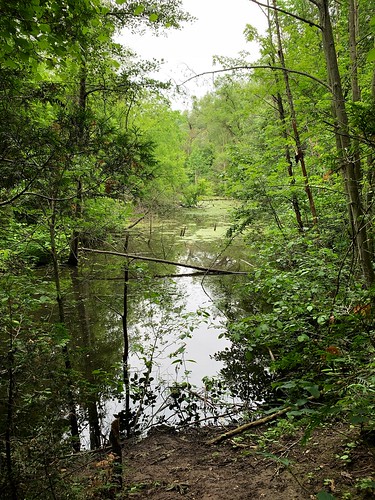
Photo Credit: cactus_forest - cc license via Flickr -
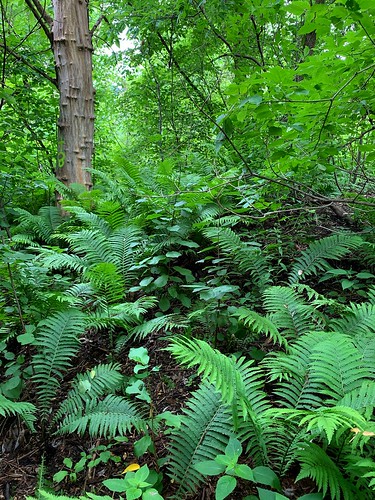
Photo Credit: cactus_forest - cc license via Flickr -
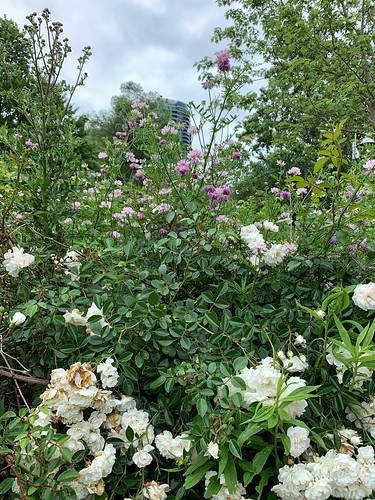
Photo Credit: cactus_forest - cc license via Flickr -

Photo Credit: cactus_forest - cc license via Flickr -
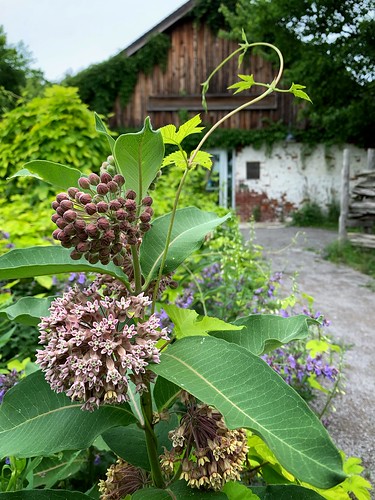
Photo Credit: cactus_forest - cc license via Flickr -

Photo Credit: cactus_forest - cc license via Flickr -

Photo Credit: cactus_forest - cc license via Flickr -

Photo Credit: cactus_forest - cc license via Flickr -
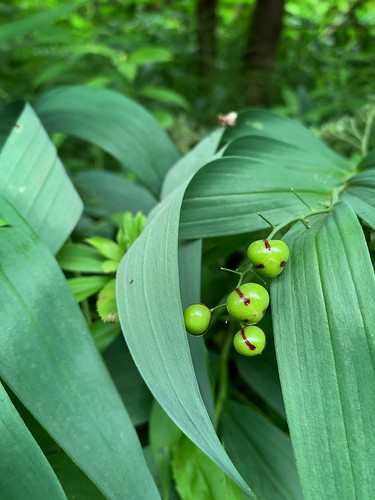
Photo Credit: cactus_forest - cc license via Flickr





